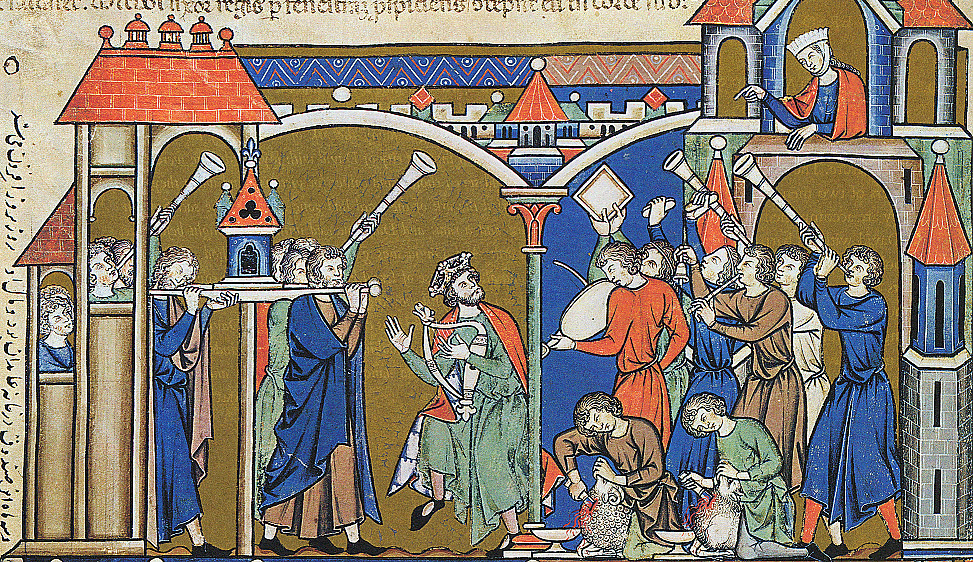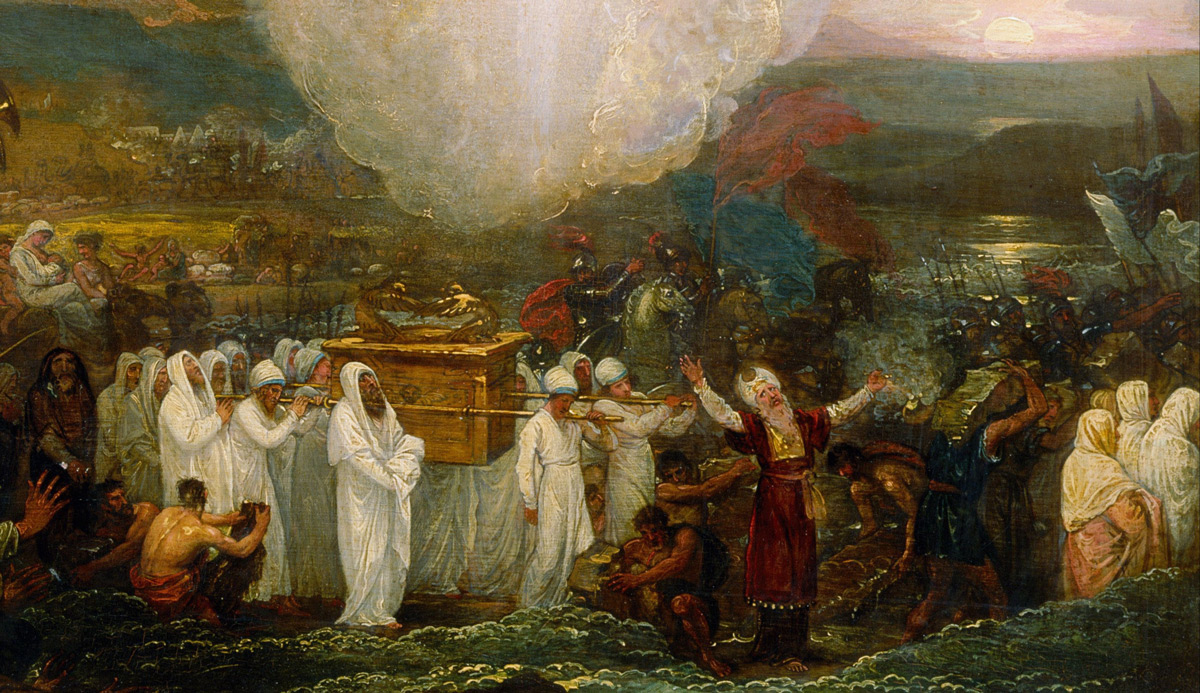Editors’ Note: Our April essay, “The Spirit of Jewish Conservatism,” by Eric Cohen, elicited such strong reactions, both in our pages and elsewhere, that we decided to continue the debate in the form of a symposium. Over the course of this week, we’re presenting brief reflections on Cohen’s thesis by 37 leading Jewish and non-Jewish thinkers.
In today’s opening group are Evelyn Gordon, Peter Berkowitz, Martin Kramer, Yehuda Krinsky, William Galston, David Gelernter, and Joseph Isaac Lifshitz. Read them sequentially, or click on a name to jump to an individual contribution, and let us know what you think in the Comments section. We hope you’ll enjoy the mix—and the fray.
———
Evelyn Gordon: Jewish Conservatism or American Conservatism?
While I laud Eric Cohen’s effort to articulate a program for a Jewish conservatism, one key feature of his program worries me greatly. This feature isn’t any of its specific components (all of which I support), but rather the fact that, as Yuval Levin perceptively notes, Cohen’s proposal essentially seeks to map the three main strands of American conservatism onto Judaism. We already know what happens when we try to bolster Jewish identity by linking it to a Western political ideology, because, as Cohen himself observes, we’re currently witnessing the disastrous fruits of a decades-long effort to do precisely that with liberalism.
Granted, much of American conservatism—like family values and the emphasis on the nation-state—is very compatible with Judaism. But so are many aspects of liberalism, like its concern for the poor or its aspirations to perfect the world. And because Judaism has aspects of both liberalism and conservatism, it can never be fully compatible with either.
Thus if Jewish conservatism is posited as merely a Jewish version of American conservatism, at some point Jewish conservatives will be forced to choose between their Judaism and their conservatism, just as Jewish liberals have been forced to choose between Judaism and liberalism. And they are liable to make the same choice many Jewish liberals have made, allowing their political ideology to trump Judaism because their political ideology has become their Judaism.
For a Jewish conservatism to be viable, it must be built from the start on Jewish rather than Western roots. And that means it can’t be fully congruent with American conservatism: It must exclude some things American conservatism contains and include some things American conservatism lacks. This would have the additional benefit of enabling Jews to make a unique contribution to American conservatism, just as Catholics have done by drawing on their unique religious tradition.
To give one example: a Jewish conservatism ought to focus far more on obligations and duties than on rights . Unfortunately, American conservatism, like liberalism, has become increasingly focused on rights. The particular rights it emphasizes often differ (religious freedom, for instance, is now championed more by conservatives than by liberals), but the rights-based discourse is the same. Consequently, almost any cause liberals can successfully cast as a “right” soon makes inroads among conservatives; see, for instance, the increasing conservative support for gay marriage. Duties, meanwhile, are increasingly falling by the wayside: conservatives are no more eager than liberals to revive the duty to defend one’s country once embodied in the universal draft.
True, the very notion of human rights derives from the Bible’s revolutionary statement that all men are created in God’s image. Yet the Bible itself doesn’t talk about rights at all; what it talks about are obligations: man’s obligations to God, man’s obligations to his fellow man, even God’s obligations to man. And that’s because, at bottom, duty is a cornerstone of a good society. It’s impossible, for instance, to sustain strong families without parents believing they have obligations to their children that trump their own right to freedom or self-fulfillment. And it’s impossible to sustain a nation-state without citizens believing they have obligations to their country that sometimes, as in war, trump their right to freedom or even life.
Like Yoram Hazony and Meir Soloveichik, I question whether any Jewish conservatism could ultimately survive without God, the Bible, and Jewish law at its core. At the very least, these sources must be mined to create a Jewish conservatism, because no other source of unique Jewish content exists. And if Jewish conservatism is simply a replica of the American version, it is guaranteed to fail.
Evelyn Gordon, who immigrated to Israel in 1987, is a journalist and commentator. Her writings have appeared in the Jerusalem Post, Azure, Commentary, and elsewhere, and she blogs at Evelyn Gordon.
———
Peter Berkowitz: The Jewish Tradition and the Tradition of Freedom
Eric Cohen’s bold manifesto should serve as a touchstone for thinking about the spirit of Jewish conservatism.
One of the essay’s achievements is to throw into sharp relief the Jewish interest—for Israeli and non-Israeli Jews alike—in forging an alliance between the Jewish tradition and the tradition of freedom, traditions which have in the past, and not without reason, looked upon one another with suspicion if not enmity.
To be sure, Cohen does not speak of the tradition of freedom but rather of the “Western conservative tradition.” But the seminal modern figures whom he explicitly invokes—Adam Smith, Edmund Burke, and F. A. Hayek—did not in the first place regard themselves as conservatives but rather as defenders of freedom. It is proper to view them as representatives of, specifically, the conservative wing within the tradition of freedom because of their emphasis on freedom’s moral prerequisites and on the limits on government that secure political liberty.
The left-liberal or progressive side of the tradition of freedom is bound to view Cohen’s defense of the family, national sovereignty, and free markets as inimical to the sweeping regulation and redistribution that it sees as inseparable from the attainment of true equality. In contrast, the conservative side welcomes the defense of all three as crucial to that form of equality which it is government’s proper task to protect, namely, equality of individual rights.
At the same time, Cohen highlights the fertile grounds—biblical, rabbinic, philosophical—within Judaism in which the alliance between the Jewish tradition and the conservative side of the tradition of freedom is rooted.
But who today among the graduates of our finest universities have opened a page of Smith, Burke, or Hayek? And who among those enriched by the study of these masters know Hebrew, can navigate a page of Talmud, and are conversant with the grandeur and tragedy of Jewish history? And who among the graduates of our preeminent yeshivas have also immersed themselves in the tradition of freedom, or even learned about the Jewish interest in liberal education?
Nothing is more crucial to the cultivation of the alliance between the Jewish tradition and the tradition of freedom than a far-reaching reform of liberal education and of Jewish education.
Peter Berkowitz is the Tad and Dianne Taube senior fellow at the Hoover Institution, Stanford University. His writings are posted at www.PeterBerkowitz.com, and he can be followed on Twitter @BerkowitzPeter.
———
Martin Kramer: Remembering Jewish Socialism
Jewish conservatism? It’s a sign of our times. Jews have more power than at any time in their history. They enjoy sovereign power in Israel, and they have prospered in America perhaps more than any other minority. These are the best of times for Jews, and no one is better served by the ascendance of (mild) nationalism and (humane) capitalism as universal values. Jewish conservatism champions both; Jewish liberalism would undermine them. Eric Cohen rightly identifies this corrosive liberalism as the preeminent threat to Jewry today.
But in our enthusiasm for the status quo, let us not forget that a century ago, Jews were in a very different state, and that they extricated themselves from powerlessness only through revolution. The Zionist revolution cast aside the millennial traditions of passive pietism; in its most fevered (and productive) phases, it elevated the collective above all else, even above the family. In the pursuit of power, especially over land, it enlisted socialist zeal—and a good thing that it did, for a capitalist mode of settlement would have produced not an Israel, but an Algeria. Cohen may be right that “the ideology of modern socialism surely fails the test of Jewish values.” But without a variety of it, Jewish settlement in Palestine might have had too small a territorial footprint to make for a viable state, and Israel might not have enjoyed the Soviet-bloc support it needed at its birth. Socialism failed everyone—except, at a crucial moment, the Jews.
The point is not to question the contemporary primacy of economic freedom and the family. It is to acknowledge that values ultimately must be judged not by whether they conform to some fixed notion of a Jewish “essence,” but whether they assure that Jews will never again find themselves naked in the world, without the power to defend themselves. For the moment, Jewish conservatism as persuasively articulated by Cohen is the perfect vehicle for the preservation of Jewish power as it is. Jewish left-liberalism, as it is purveyed in America and Israel, would put Jewry in peril. But we cannot know what challenges the future may pose, and whether it will require that Jews become revolutionaries yet again.
Martin Kramer is the president of Shalem College in Jerusalem.
———
Yehuda Krinsky: For Jewish Education and Jewish Experience
Eric Cohen’s essay provides interesting insight into changing political and philosophical trends among Jewish intellectuals, especially when it comes to the critically important issues of Jewish family and community; a thoughtful response to his essay and the published responses to it would merit a much more thorough treatment than space permits.
I do feel compelled to note, however, that throughout his lengthy analysis, Cohen stops short of any discussion of practical Jewish observance: the meat and potatoes of Jewish identity. This is all the more disappointing since his essay has deservedly garnered attention for delving into subjects that rightly preoccupy the minds of all who are concerned about the Jewish future. But without at least some reflection on how the practice of mitzvot bears upon Jewish identity, and on the way in which the power of Jewish observance can align and deepen that identity, he leaves his readers unmotivated to inquire about the Judaism that is or can be theirs.
Jewish practice, especially for people new to it, demands access to Jewish education—and never before has this education been more available to more people in more places. Language, geographic distance, even cultural differences no longer present barriers to learning or offer excuses for ignorance. The responsibility rests with Jewish leadership to ensure that at every level, within every demographic sector, Jews have access to Jewish texts and study opportunities.
As with access to study, so with access to the experience of Jewish community: that experience is now available to Jews in even the most remote places on earth. Indeed, in many of these places, thanks to the ubiquity of Chabad—the realization of the Rebbe’s vision in which no Jew would be left behind—and to Chabad’s technological prowess, significant numbers of Jews have been enabled to rediscover and reclaim their roots.
And yet, the sad truth remains: never before has there been a time like the present when two people speaking about Jewish identity can no longer assume they are speaking about the same thing. In the face of this truth—that is, the disintegration of a once-reflexive consciousness of the common Jewish heritage and destiny—I doubt that any amount of philosophical sparring will help narrow the huge gaps that have opened up within our people.
Rather, it is in the day-to-day ways of doing things as Jews—the shared experience of how we eat, celebrate, marry, and pray—that we have at hand the means to keep ourselves connected to our past and committed to our future. The famous Zionist intellectual Ahad Ha’am (1865-1927), although himself not an observant Jew, had the courage to admit the fact, inconvenient perhaps even to him, that it is precisely in practice that we sustain ourselves and grow as a people. “More than the Jewish people have kept the Sabbath,” he wrote, “the Sabbath has kept the Jewish people.”
Rabbi Yehuda Krinsky is chairman of the educational and social-services organizations of the worldwide Chabad-Lubavitch movement.
———
William Galston: Time to Set Aside Obsolete Quarrels
In the current context, “liberal” is an ambiguous term. In its narrower political sense, it serves as the antonym of “conservative.” In its more systemic and theoretical sense, it stands for a broad orientation that gives central status to popular consent as the basis of legitimate government and to individual liberty as the animating purpose of popular government.
I begin with these abstract reflections because Eric Cohen’s critique of Jewish liberalism oscillates between these two concepts of liberalism. Consider the proposition that in the United States and throughout the democratic world, “Jewish freedom also entails the freedom not to be Jewish.” Indeed it does. But this has nothing to do with liberalism in its strictly political sense. It is rather a defining feature of modern liberal democracy. Wherever religion is a matter of choice rather than compulsion, and whenever societies eliminate barriers to the exercise of choice, individuals may shed the faith of their forebears in favor of another—or none at all.
That the ability to opt out creates difficulties for Jewish continuity is an old story. But it is no reason to see an incompatibility between Judaism and liberal democracy, let alone reject the liberal democratic principles at the heart of documents such as the American Declaration of Independence. It is rather a permanent challenge to Jewish parents and Jewish institutions in free societies.
What about Cohen’s thesis that liberal universalism is at odds with Jewish particularism? First, universalism is hardly the invention of contemporary liberal activists. It is built into the intellectual foundation of liberal democracy itself. Second, there is no incompatibility in practice between universalism and particularism. Most Americans are intensely patriotic—and also committed to their country’s founding principles. In much the same way, Judaism combines a special loyalty to a particular people with an understanding of what is owed to human beings outside the perimeter of the Jewish community, because they too are wrought in the image of God. As Yedidia Stern rightly insists, whether we look to the Torah or to the state of Israel’s founding documents, we will find universalism and particularism tightly intertwined.
Cohen fears that American Jewry’s long-standing embrace of universalism is corroding its capacity to give due weight to the imperatives of Jewish continuity at home and to the survival of the Jewish state. This is a perennial danger. If we are not for ourselves, who will be for us? A healthy self-regard—andwhen necessary self-preference—constitutes the heart of dignity. But the risk runs both ways. When self-regard shades over into indifference to the claims of other individuals and other communities, it undermines the very spirit of Judaism, which constantly enjoins us to remember the stranger—because throughout our history we have been strangers in lands not our own.
Cohen rightly calls our attention to the harsh imperatives of national survival. But he also notes—rightly—that the ethics of war have changed since Joshua’s time. The IDF constantly reexamines its norms and procedures to reduce risks to non-combatants. Like any other country, Israel can strike a questionable balance, and reasonable people can disagree in specific cases. But there are principles applicable to all nations in times of war, principles that combatants can only override, as Cohen puts it, “in moments of great peril or supreme emergency.” Here again we see the interplay of universalism and particularism, each limiting the other.
Much of Cohen’s essay rehashes questions that have long divided political conservatives from political liberals. On just about every front, I disagree with his depiction of the contemporary battle line. Let me pick just two. Echoing Irving Kristol, Cohen dubs socialism “the political stupidity of the Jews.” Where to begin? Whatever may be the case today, socialism helped build the nascent Jewish state, and Jewish immigrants to America with socialist leanings helped build a more balanced and decent economy. Today, socialism tempts very few American Jews. Yes, they are predominantly liberal in economic matters. But liberalism is not the same thing as socialism.
Similarly, how many contemporary Jewish liberals seriously dream of what Cohen terms “consolidated world government” with a “single currency, a single bureaucracy, and a single legal authority”? Does Cohen really believe that the World Federalists are running J Street and the New Israel Fund? Liberal Jews do not end their seders by chanting “Next year in Brussels.” It’s time to set these obsolete quarrels aside and focus on the real problems of today and tomorrow.
William Galston, a senior fellow at the Brookings Institution and a former policy adviser to President Bill Clinton, writes widely on domestic policy, campaigns and elections, and political theory.
———
David Gelernter: Shaking Jews out of Liberalism
Eric Cohen’s essay is full of strong and convincing ideas. But I can’t tell whether it succeeds, because I’m not sure what it is trying to do. The essay leaves me no wiser regarding the hard problem of turning Jewish liberals into conservatives—or at least getting them to relax their frantic, frightened-child death grip on liberalism and look around and think.
Jewish conservatives might be fascinated by Cohen’s impressive and convincing argument. But his main goal is, clearly, to impress Jewish liberals.
Does Cohen share the widespread belief that Jews are liberal more for religious than political reasons? Because they are an intensely religious people who have lost Judaism and found a replacement? If so (as I and many others believe), then you can’t talk them out of it. Rational argument cuts no ice with religious believers. Only popular experience makes a difference. If, however, Jews have chosen liberalism for conventional reasons of principle and self-interest, they must be shown that conservatism is the smarter choice, not the more Jewish one. Or is Jewish liberalism mere habit? But you don’t argue people out of a bad habit, you inspire or frighten or shake them.
Jews became liberals to start with mostly, I believe, because they saw suffering and injustice in the West circa 1900, and liberalism seemed to address it. Suffering and justice are the Jewish issues. Why have there been no conservative presidential candidates on the streets of Baltimore today saying, “Look at these people, America, who suffer every day because of the smug, dumb, incompetence of the left!”? Where are the speeches in front of public schools: “Is it right that we should rear our children ignorant?” Point to the sometimes hopeless unemployed in this so-called recovery; go to the VA’s, stand in front of the IRS, the State Department and Department of Justice: “Does injustice matter?” To lessen suffering, smash injustice, educate all of our children and preserve and strengthen American greatness: that is modern conservatism, and Jews should be told. The rest is commentary.
David Gelernter is a professor of computer science at Yale and the author of, among other books, The Muse in the Machine, Americanism: The Fourth Great Western Religion, and Judaism: A Way of Being.
———
Joseph Isaac Lifshitz: The Value of Trust
In his seminal essay, Eric Cohen aims to inspire a revival of Jewish conservative thought in the realms of ethics, politics, and economics. His hope is to develop “a unifying ideology: a set of ideas and arguments that might [forge] a rough consensus on how best to strengthen Jewish resolve against our many internal weaknesses and our zealous external enemies.” This “new Jewish conservatism,” he writes, “must be rooted in the traditions and experiences of the Jewish people.”
I agree, and in furtherance of this project I would like to propose an idea that, going beyond politics, family, and the economy, touches them all.
Modern economic thought is largely a system-oriented methodology. Since Adam Smith, the market has been perceived as a self-correcting mechanism that, running on the principle of individual self-interest, and yields invisible and beneficial forms of cooperation. From Smith’s time to our own, economists have looked for ways both theoretical and practical to improve the market’s mechanics. Modern game theory is an example of such an enterprise; more recently, behavioral psychology has been drafted and applied to the same task.
Nor is the market the only man-made system to be treated in this way. Think, for example, of personnel management, a “system” often similarly reduced to its presumed mechanics. Even politics is not immune; how often do we ascribe a breach of honesty or comity in political life to some breakdown in our inbuilt system of checks and balances rather than to our own failure to choose honest representatives in the first place?
Jewish tradition advocates taking the human element seriously and relying less on the system as such. According to the Talmud, we are obliged to extend a basic level of trust to the people we have elected or appointed to public posts, and to refrain from subjecting them to excessive suspicion—so long, of course, as they are seen to adhere to the highest standards of honesty and integrity. I’m not suggesting that this is a substitute for a system of checks and balances; such a system is indispensable. What I’m suggesting, in line with the aims of a truly Jewish conservatism, is a return to and a re-emphasis on one of the most important and most forgotten conservative values: the value of trust.
Joseph Isaac Lifshitz teaches philosophy and Jewish thought and is the author of Judaism, Law, and the Free Market.
———
Coming tomorrow: Hillel Halkin, Daniel Johnson, David Wolpe, Naomi Riley, Jon Levenson, Eric Yoffie, and Shalom Carmy.
More about: Jewish conservatism







